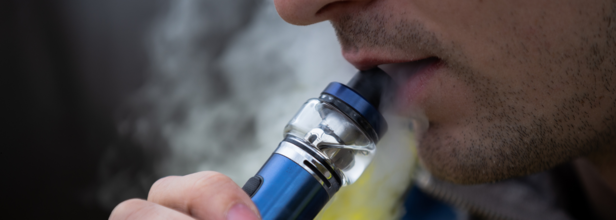
Credits: Canva
Vape Companies Are The Reason for Addiction In Youth, Says New York Attorney General
New York Attorney General Letitia James took a strong stand against e-cigarette manufacturers and distributors. James has filed a lawsuit accusing them of fueling a youth vaping crisis. The lawsuit alleges that these companies that manufacture vapes, especially with flavors have misled consumers about the safety of their products while deliberately targeting young people through deceptive marketing.
The lawsuit was filed with the names of 13 companies, including Puff Bar, Demand Vape, and Pod Juice, and accuses them of violating New York's 2020 ban on flavored e-cigarettes. The flavors are widely popular among young users, which makes them vulnerable to addiction. The lawsuit seeks hundreds of millions of dollars in penalties, along with funding for programs to combat youth vaping.
Rise of Youth Vaping
Vaping has become a more common form of tobacco use among American middle and high school students. As per the Centers for Disease Control and Prevention or CDC, nearly 1.6 million students used e-cigarettes in 2024, with 87.6% of them opting for a flavored product. It is the flavor that makes it even more addictive, and people want to keep smoking it, resulting in it being emptied and refilled way more quickly. This means those who smoke flavored cigarettes consume more tobacco than those who smoke unflavored ones. Although overall youth vaping rates have declined by almost 70% since their peak in 2019, health officials say the industry’s marketing tactics remain a serious concern.
As per the AMA Journal of Ethics, the rise of e-cigarettes and vaping has raised concerns that another generation may become dependent on nicotine. The US note more than 2,000 lung illnesses and over 40 deaths due to this rise.
Nicotine addiction is especially harmful to young people. Medical experts warn that nicotine can interfere with brain development, increase the risk of mental health issues, and lead to lifelong addiction. The attorney general’s lawsuit argues that vape companies are ignoring these risks to maximize profits.
Battle Of Regulation
The vaping industry for the longest has argued that e-cigarettes are a safer alternative to traditional cigarettes and help adult smokers transition away from tobacco. However, anti-tobacco advocates contend that these products are actually hooking young people on nicotine. CDC notes that it is a highly addictive substance and is toxic to developing fetuses, along with many other dangers.
For children, they can be poisoned by swallowing, breathing or absorbing it. In case there is a leakage, the vaping liquid on the eyes and skin can cause health issues. More than 80% of calls to U.S. poison control centers for e-cigarettes are for children less than 5 years old.
CDC also notes other dangers like harm in brain development that continues until the age of 25. It can also lead to addiction, and harm the parts of the brain that control mood, attention, learning, and impulse control. Furthermore, those who vape, notes CDC are furthermore likely to smoke in future. It also includes cancer-causing chemicals, heavy metals like nickel, tin and lead and the tiny particles can be inhaled deep into the lungs.
Federal regulators and states like New York have implemented strict measures to curb youth vaping, including banning flavored e-cigarettes and cracking down on illegal sales. But vape companies have found ways to bypass these restrictions, with many products still being sold online or shipped illegally to retailers near schools.
New York’s lawsuit claims that several companies have violated federal laws, including the Prevent All Cigarette Trafficking (PACT) Act, which regulates the shipment of tobacco products. It also accuses manufacturers of using social media advertising and influencer campaigns to make vaping seem trendy and harmless.
The case against these vape companies comes at a time when regulatory battles over flavored e-cigarettes have reached the U.S. Supreme Court. Last year, Juul, a major e-cigarette brand, agreed to pay $255 million in a lawsuit over misleading marketing.
© 2024 Bennett, Coleman & Company Limited

